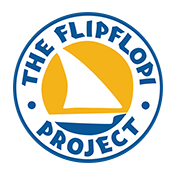Agence Française de Développement: Supporting Clean Water Access Around Lake Victoria
By Davina Ngei
Image courtesy of Agence Française de Développement
According to WHO and UNICEF, 1 in 3 people globally do not have access to safe drinking water and over half of the global population lack safely managed sanitation services.
With a growing demand for this vital resource to meet human, agricultural and commercial needs, it is critical that water is sustainably managed and protected from increasing pollution, climate change, and acute stress. Furthermore, it is imperative that water is safe to access, affordable, and available.
Closer to home, Africa’s largest freshwater lake, Lake Victoria, is crucial to the health and livelihoods of over 40 million people who rely on it for food and water. Unfortunately, this lake (bordered by Kenya, Tanzania, and Uganda), is steadily being contaminated by sewage, heavy metals, and industrial effluent, making it increasingly harder to access clean water.
It is with this knowledge in mind that different grassroots organisations, development agencies, and government institutions have worked for years to secure the health and survival of the lake, and in turn, safeguard the communities who call it home.
Today we sit down with Berenice Oreyo-Pierronnet from the Agence Française de Développement - the French Development Agency, to learn more about their work in supporting initiatives for clean water access around Lake Victoria.
Who is Agence Française de Développement (AFD)?
Image courtesy of Agence Française de Développement
AFD is a development agency that finances, supports, and accelerates the transition to a fairer and more sustainable world. Our focus is on climate, biodiversity, peace, education, urban development, health and governance.
We’ve built a strong presence in Kenya, Uganda, and Tanzania, over the last two decades, with our work revolving around energy, water, transport and finance.
In particular, we extend lines of credit to commercial banks and finance projects in partnership with governments, including but not limited to water treatment plants, water distribution networks, and sanitation systems.
We also provide technical assistance for projects to ensure that they are sustainable.
What problems are you trying to solve around Lake Victoria, and how?
As the French implementation arm of the Sustainable Development Goals, our goal is to support gender-equal environmentally-friendly initiatives. We believe that the vital ecosystem of Lake Victoria should be kept sustainable for decades to come.
To this end, we push for governments to invest in safeguarding the lake while also financing research to support clean water projects around the lake. We are also part of sectoral groups in Uganda and Tanzania - where we engage civil society and government to work towards shared goals on clean water access.
We have worked with the cities of Kisumu, Kampala, and Mwanza - the main cities around Lake Victoria, on water and sanitation projects. Additionally, we are pushing for investments in sanitation and wastewater systems, as water treatment is costlier when the lake is more polluted.
Furthermore, we funded a study on blue algae (cyanobacteria) in Lake Victoria, which is attributed to pollution from agricultural and human waste. Additionally, we have a second study carried out with Makerere University in Uganda, which looks at the quality of the lakes in Africa as well as possible solutions to contamination and pollution.
Our motto is for a world in common, and this can only be achieved by combining our expertise with local expertise in the countries where we work.
Image courtesy of Agence Française de Développement
Why did you decide to partner with Flipflopi for the Lake Victoria expedition?
We recently entered into a communications partnership with Flipflopi, focused on the upcoming Lake Victoria expedition.
What we saw during Flipflopi’s historic Lamu to Zanzibar expedition is the convening power this multi-coloured dhow has. Our aim with this partnership is to gather more collaborators around Lake Victoria, including decision-makers and donors, as well as to bring more attention to the state of the lake, therefore encouraging more investments in water and sanitation systems.
Furthermore, we do not engage directly with communities, so the sensitization led by Flipflopi is important as it allows people to better understand their part in this shared ecosystem.
What are some of your biggest successes around Lake Victoria?
We’ve witnessed great progress around the lake. 20 years ago, Kisumu was facing a huge cholera problem due to the lack of sanitation systems and the lack of access to clean water. For the last 15 years, we have financed the rehabilitation and expansion of water supply and sanitation infrastructure in Kisumu, which has significantly boosted the city’s water production capacity.
Today, Kisumu is one of the few cities in Kenya that can provide clean water access 24 hours a day/7 days a week to those connected to its water supply grid.
In Kampala, we have financed initiatives to establish clean water and sanitation systems. Water is sourced far off the coast as there are fewer algae and therefore the water is more affordable to treat.
When we look at Mwanza, we have financed a simple and efficient system to offer clean water and sanitation to households. This system is flexible as households in the area are built on large rocks, which makes traditional water distribution difficult. We have also signed two investments to extend this system to reach a wider population.
What are your goals for the future?
We want to continue to take an active role in safeguarding Lake Victoria - keeping it clean and protecting biodiversity so that communities can enjoy it for decades to come. It is also important for us to tackle the pollution threatening the lake, including monitoring its water quality.
We are also hoping to see more investments directed towards expanding water and sanitation systems around the lake, to cater for a growing population as well as to withstand the strains of climate change.
Lastly, we are interested in supporting governments as they find solutions to the intense flooding we are currently witnessing around Lake Victoria.




